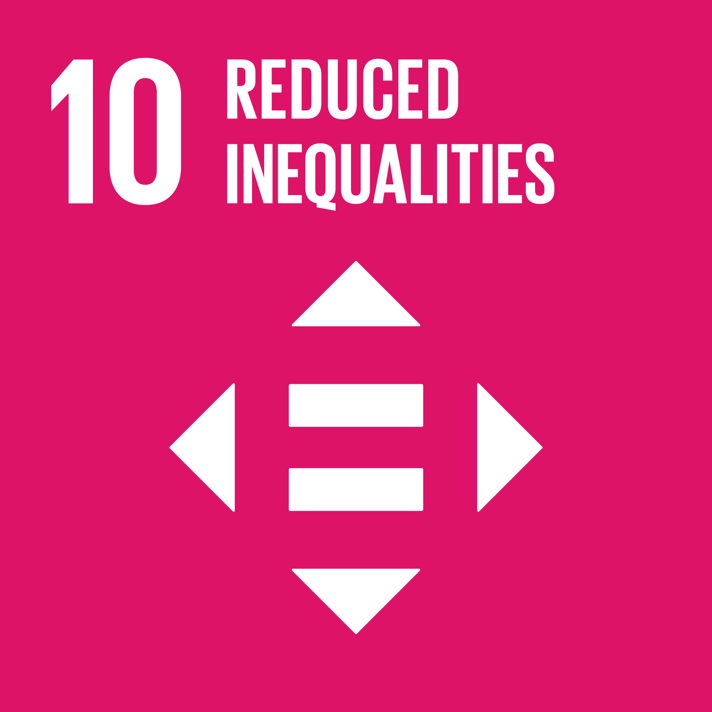Goal 10: Reduced inequalities
Published
Goal 10 is to reduce inequality within and among countries.

Economic development can lead to reduced poverty for the individual and for society. We must act to ensure that access to resources and the opportunity to participate and influence developments in society are fair, both within countries and among countries. Even if many countries have experienced positive economic development and reduced poverty, gaps between individuals and groups, based on gender, age, ethnicity, and economic and social status, etc. have widened.
States have the main responsibility for promoting equality in society, since inequality stems from structural conditions. An equal society is based on the principle of the equal rights of all people regardless of gender, sexual orientation, ethnicity, religion or belief, disability or origin, which also serves as a basis for an equitable distribution of resources, and economic and political influence in society.
Inequality is also a matter of disparities related to access, opportunities, resources and the ability to contribute to and make use of potential development opportunities. This is true at all levels, from differences in the opportunities individuals have to the varying development potential among countries. Inequality tends to perpetuate poverty since extreme poverty in different dimensions makes it more difficult for people and society to benefit from development. Inequality is often a matter of inequitable access to resources and utilities, such as access to clean water, and is therefore also a source of conflict.
The issue of equality is linked to most of the other goals. Quality lifelong learning for all is key to building a democratic society and promoting social and gender equality. Equitable access to health services and to conditions that promote good health also promote good quality of life and opportunities for people to support themselves, including people with limited resources. Clear regulations on the ownership, sale and inheritance of land and any return from it, that cover both women and men and different groups in society, form the basis of sustainable use of natural resources and consequently also food security. Gender equality and the empowerment of women and girls are key to achieving greater equality in society. Peace and freedom from all forms of violence are essential for building sustainable societies in which all individuals and groups can use their abilities.
Targets
10.1 By 2030, progressively achieve and sustain income growth of the bottom 40 per cent of the population at a rate higher than the national average
10.2 By 2030, empower and promote the social, economic and political inclusion of all, irrespective of age, sex, disability, race, ethnicity, origin, religion or economic or other status
10.3 Ensure equal opportunity and reduce inequalities of outcome, including by eliminating discriminatory laws, policies and practices and promoting appropriate legislation, policies and action in this regard
10.4 Adopt policies, especially fiscal, wage and social protection policies, and progressively achieve greater equality
10.5 Improve the regulation and monitoring of global financial markets and institutions and strengthen the implementation of such regulations
10.6 Ensure enhanced representation and voice for developing countries in decision-making in global international economic and financial institutions in order to deliver more effective, credible, accountable and legitimate institutions
10.7 Facilitate orderly, safe, regular and responsible migration and mobility of people, including through the implementation of planned and well-managed migration policies
10.a Implement the principle of special and differential treatment for developing countries, in particular least developed countries, in accordance with World Trade Organization agreements
10.b Encourage official development assistance and financial flows, including foreign direct investment, to States where the need is greatest, in particular least developed countries, African countries, small island developing States and landlocked developing countries, in accordance with their national plans and programmes
10.c By 2030, reduce to less than 3 per cent the transaction costs of migrant remittances and eliminate remittance corridors with costs higher than 5 per cent

 X
X